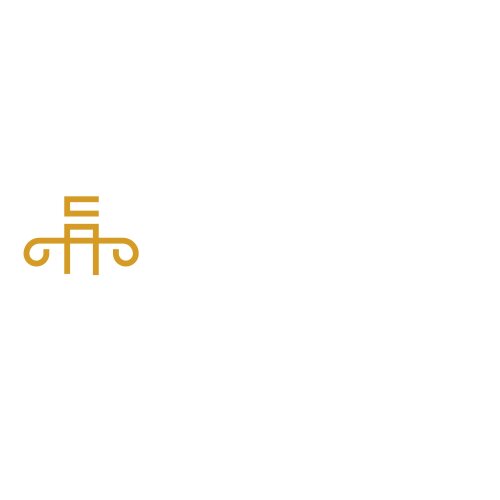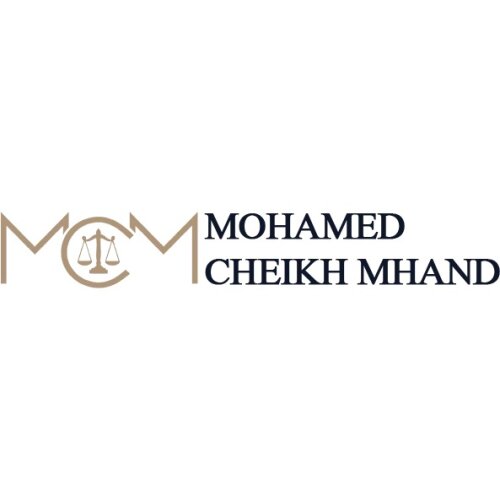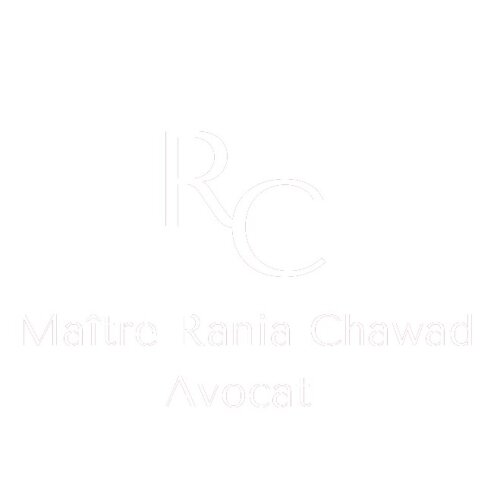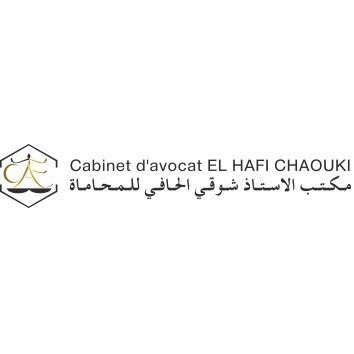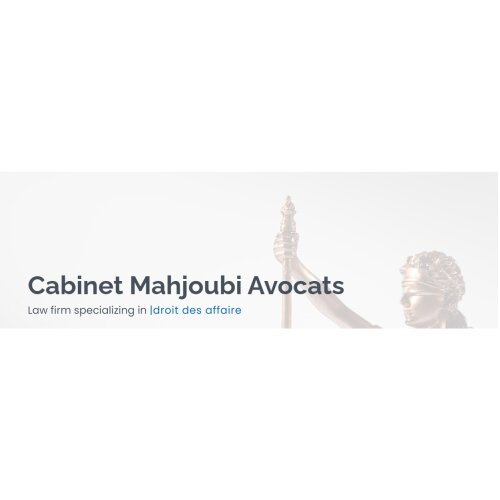Best Private Equity Lawyers in Tangier
Share your needs with us, get contacted by law firms.
Free. Takes 2 min.
List of the best lawyers in Tangier, Morocco
About Private Equity Law in Tangier, Morocco
Private Equity (PE) in Tangier, Morocco, is an increasingly prominent area within the broader field of corporate and investment law. Tangier, known for its strategic location and dynamic economic landscape, has become a magnet for both local and international investors seeking opportunities in various sectors such as manufacturing, logistics, tourism, and technology. Private Equity involves investment funds, typically organized as limited partnerships, that buy and restructure companies not publicly traded on a stock exchange. In Tangier, the legal framework outlines how these transactions can take place, the protocols for establishing funds, and the rules for mergers, acquisitions, and exits. The unique economic climate, combined with Morocco’s reforms targeting investment and entrepreneurship, makes Tangier a fertile ground for PE activities, each requiring expert legal guidance to navigate successfully.
Why You May Need a Lawyer
The complexities inherent in Private Equity transactions make legal advice crucial. Some common situations where individuals or businesses may require a PE lawyer in Tangier include:
- Structuring and negotiating investment agreements
- Conducting due diligence on target companies or assets
- Ensuring regulatory compliance during fund creation or management
- Drafting and reviewing shareholder agreements
- Handling mergers, acquisitions, or divestitures
- Resolving disputes among partners or stakeholders
- Navigating cross-border transactions and foreign direct investment rules
- Protecting intellectual property rights during investments
- Understanding local tax implications and strategies
- Managing exits from investments, including IPOs or asset sales
Given the high stakes and regulatory requirements involved in Private Equity, early legal assistance can help safeguard interests, minimize risks, and ensure compliance with Moroccan law.
Local Laws Overview
Private Equity operations in Tangier are governed both by Moroccan national laws and local business regulations. Some of the most relevant legal aspects include:
- Investment Law: Morocco encourages both domestic and foreign investment, with laws designed to offer protection and incentives for PE activities. The Investment Charter outlines general rules for sectoral investments and tax benefits.
- Company Law: The Moroccan Companies Act (Law 17-95 and subsequent amendments) regulates the formation, management, and dissolution of companies. Understanding these provisions is essential during buyouts or corporate restructuring.
- Financial Market Oversight: The Moroccan Capital Market Authority (AMMC) plays a vital role in supervising securities and investment funds operations relevant to PE transactions.
- Foreign Direct Investment: While generally open to foreign investors, certain sectors may require prior authorization or have restrictions. Exchange regulations overseen by the Office des Changes must be carefully followed.
- Taxation: Tax optimization is central to PE deals. Morocco has specific rules regarding withholding taxes, VAT, and exemptions for certain investment types, all of which should be factored into transaction planning.
- Employment Law: Labor regulations can impact PE, especially during company restructuring, layoffs, or management changes.
- Antitrust and Competition: PE transactions exceeding certain thresholds may need clearance from the Competition Council to avoid anti-competitive practices.
Every stage of a Private Equity transaction in Tangier requires careful legal analysis to ensure full adherence to local statutory requirements and to maximize the benefits of investment.
Frequently Asked Questions
What is Private Equity and how is it regulated in Tangier?
Private Equity involves the investment in or acquisition of private businesses with the goal of growing them and achieving a profitable exit. In Tangier, PE is regulated by national investment, company, and financial market laws, all of which set out how funds and acquisitions can be conducted legally.
Do foreign investors face restrictions in Moroccan Private Equity deals?
Morocco is generally open to foreign investment, but some sectors may have restrictions or require government approval. Currency exchange rules must also be observed, especially when transferring funds in or out.
What legal structure is commonly used for Private Equity funds in Morocco?
The Société en Commandite par Actions (SCA - partnership limited by shares) and other investment fund structures are popular. Choosing the right structure depends on the size, scope, and investor profile of the fund.
Why is due diligence important in Private Equity transactions?
Due diligence identifies legal, financial, and operational risks associated with an investment. Legal due diligence helps uncover any regulatory or compliance issues that may affect the transaction or future value.
What are typical stages in a Private Equity transaction?
Stages typically include identifying the target, initial negotiations, letter of intent, due diligence, drafting contracts, securing regulatory approvals, and closing the deal, followed by ongoing management and a strategic exit.
Are there tax incentives for Private Equity investors in Tangier?
Morocco offers a range of tax incentives for certain sectors and regions, including Tangier, which is considered a major investment hub. These can range from reduced corporate income tax rates to VAT exemptions, depending on the nature of the investment.
How are disputes in Private Equity transactions resolved?
Disputes may be resolved through negotiation, mediation, Moroccan courts, or arbitration depending on the contracts involved. Many investors favor arbitration for its efficiency and confidentiality.
What role do local authorities play in PE investments?
Local authorities in Tangier may be involved in business licensing, property registration, and compliance checks. Investment projects may also require approvals or assistance from various regional agencies.
How long does a Private Equity transaction usually take in Morocco?
The timeline varies depending on deal complexity, due diligence requirements, and regulatory approvals, but can take several months from initial discussions to closure.
Can a Private Equity investment be made in any sector in Tangier?
While most sectors are open to PE investments, some sensitive areas such as defense, energy, and banking may be restricted or heavily regulated. A lawyer can help identify sector-specific requirements before proceeding.
Additional Resources
If you are seeking more information or support regarding Private Equity in Tangier, the following resources can be helpful:
- Moroccan Capital Market Authority (AMMC)
- Moroccan Investment and Export Development Agency (AMDIE)
- General Confederation of Enterprises of Morocco (CGEM)
- Chamber of Commerce, Industry, and Services of Tangier-Tetouan-Al Hoceima
- Office des Changes (Foreign Exchange Office)
- Moroccan Bar Association for legal referrals
These organizations offer guidance, publications, and support services for investors and legal professionals active in the Private Equity field.
Next Steps
If you are considering or currently involved in a Private Equity transaction in Tangier, Morocco, it is highly advisable to:
- Consult a qualified local lawyer with experience in Private Equity and corporate law
- Prepare all necessary business documentation and financial records
- Research sector-specific regulations or restrictions for the desired investment
- Initiate due diligence early to identify and address legal risks
- Engage with relevant local authorities or industry organizations to facilitate permissions or obtain guidance
Working with a legal professional from the earliest stages will help you navigate the regulatory landscape, structure your deal for maximum benefit, and protect your investment in the competitive Tangier market.
Lawzana helps you find the best lawyers and law firms in Tangier through a curated and pre-screened list of qualified legal professionals. Our platform offers rankings and detailed profiles of attorneys and law firms, allowing you to compare based on practice areas, including Private Equity, experience, and client feedback.
Each profile includes a description of the firm's areas of practice, client reviews, team members and partners, year of establishment, spoken languages, office locations, contact information, social media presence, and any published articles or resources. Most firms on our platform speak English and are experienced in both local and international legal matters.
Get a quote from top-rated law firms in Tangier, Morocco — quickly, securely, and without unnecessary hassle.
Disclaimer:
The information provided on this page is for general informational purposes only and does not constitute legal advice. While we strive to ensure the accuracy and relevance of the content, legal information may change over time, and interpretations of the law can vary. You should always consult with a qualified legal professional for advice specific to your situation.
We disclaim all liability for actions taken or not taken based on the content of this page. If you believe any information is incorrect or outdated, please contact us, and we will review and update it where appropriate.




